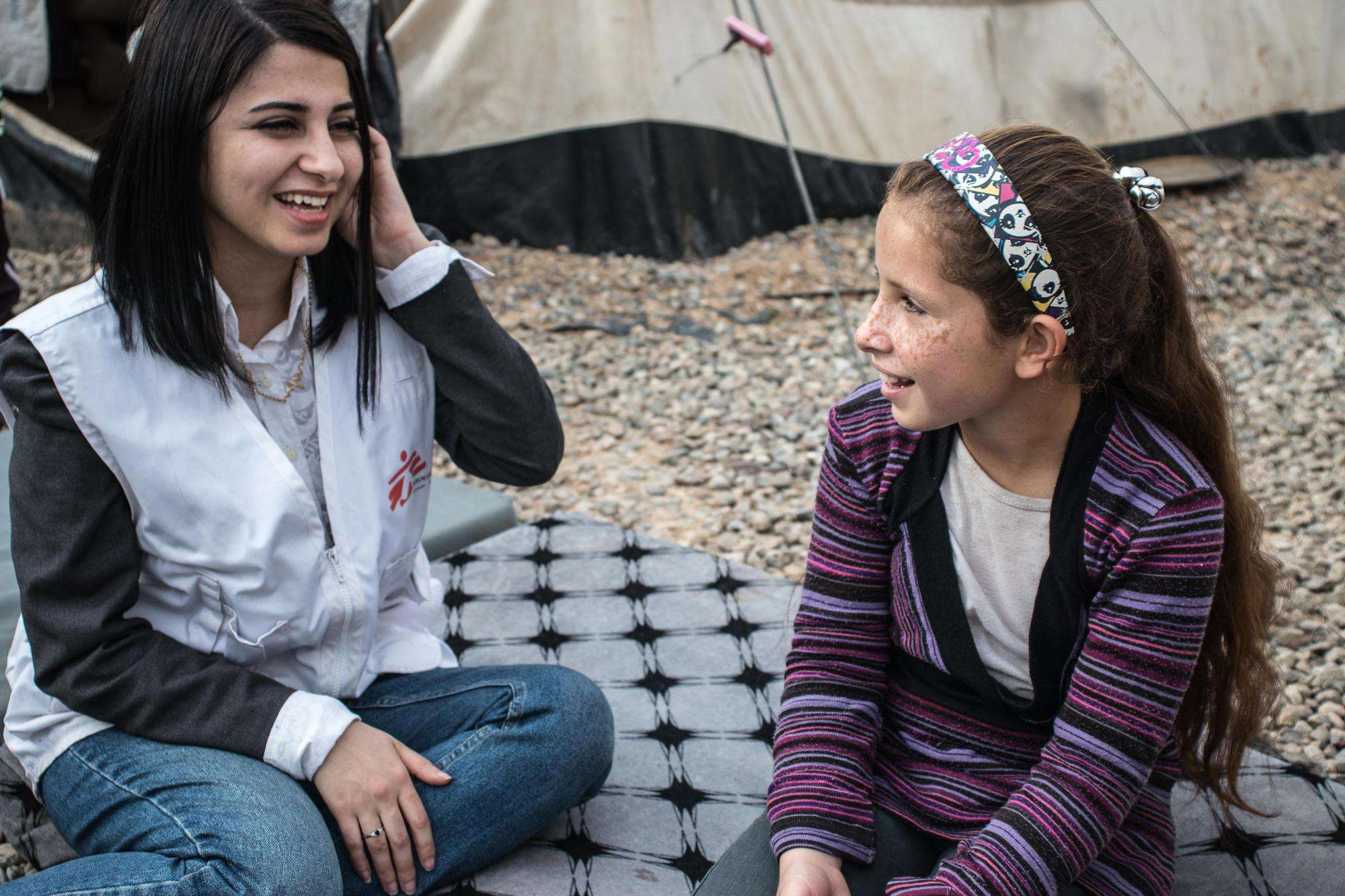Eleven-year-old Rasha lives with her father, Halif, in a camp for displaced people in northern Iraq. They fled the city of Mosul in early 2017 amid fierce fighting between the Islamic State (IS) group and Iraqi forces supported by the United States. Even after arriving in Hassansham camp, near the city of Erbil, she did not feel safe.
Rasha was constantly afraid as a result of the traumatic events she had witnessed in Mosul, including the death of a beloved uncle shot by a sniper. Rasha received psychological care from Doctors Without Borders/Médecins Sans Frontières to help manage her fears.
Rasha says she feels much better now. “I am like my old self—what I was before IS came.” The young girl says she wants to become a doctor herself: “I like taking care of people. I would like them to get better, and also for them to be happy.”
MSF first began working in Iraq in 1991. We currently work in the governorates of Erbil, Diyala, Ninewa, Kirkuk, Anbar, and Baghdad.
Our teams provide primary and secondary health care, services for expectant and new mothers, treatment for chronic diseases, surgery and rehabilitation for war-wounded, mental health support, and health education activities.
MSF works in six locations around the camps for internally displaced people near Mosul and Erbil, providing mental health care and treatment for non-communicable diseases, such as diabetes. Mental health services include psychological and psychiatric consultations, group therapy, psychosocial counseling, and child therapy.




